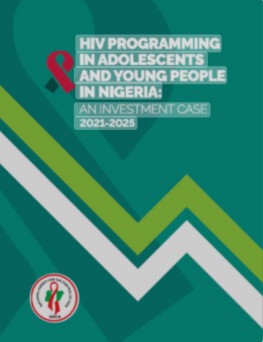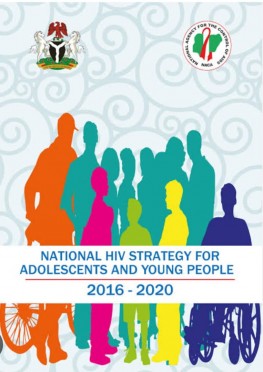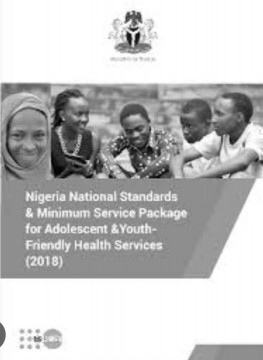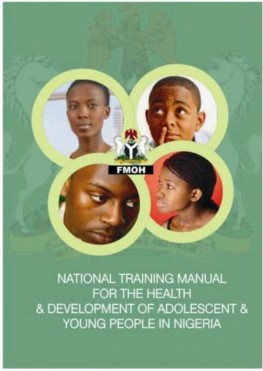Frameworks for Adolescent Sexuality in Nigeria and Implications for Inclusivity and Diversity
Authors: Boladale Mapayi1, Olakunle Oginni2, Ibidunni Oloniniyi1,3, Jibril Abdulmalik4, Olayinka Atilola51 Department of Mental Health, Obafemi Awolowo University, Ile Ife, Nigeria
2 Wolfson Centre for Young People's Mental Health, Cardiff University, UK
3 Essex Partnership University NHS Foundation Trust, Essex, UK
4 Department of Psychiatry, College of Medicine, University of Ibadan, Ibadan, Nigeria
5 Department of Behavioural Medicine, College of Medicine, Lagos State University, Lagos, Nigeria
Background
Adolescents and young people make up about a third of Nigeria’s 200 million strong population [1]. This youthful population is largely ignored and faces enormous challenges when it comes to accessing information on sexual and reproductive health and rights (SRHR) [2]. They often rely on peer influence and social media and are plagued by inadequate information, shame, and stigma, cultural and religious bias. Adolescent sexuality, often shaped by many factors, including biology, culture, political terrain, emerging sexual orientation, and gender identity (SOGI) is mostly shrouded in secrecy in Nigeria and other low and middle-income countries [3]. This stalls access to reproductive health information, safe sex practices including condom use, and access to safe abortion. Gender identity, sexual orientation, and issues around sexuality for young people are often marred by religious, cultural, and societal biases [4]. The criminalization of non-heterosexual (same-sex) relationships facilitates discrimination, internalised stigma, and ‘conversion therapy’. These can increase the risk of mental health symptoms and disorders. Within this context, adolescents often have to hide confusing emotions with few safe spaces to obtain information and support. The Nigerian policy landscape is rife with adolescent health policies that have just begun to consider using available opportunities to promote inclusive and equitable services with the use of context-specific, and culturally adaptable resources.
Policy frameworks for adolescent sexuality in Nigeria
Nigeria has several policies that specifically target the health and development of adolescents and young people [5, 6, 7]. While recent revisions of these policies have tackled several concerns around sexuality, the revisions still occur in the backdrop of other policies around sexuality which resonate more with contextual beliefs rather than global best practices, including the criminalization of same-sex relationships and non-recognition of gender non-conforming individuals in the policy landscape.




Policies Documents that specifically target the health and development of adolescents and young people
The mental health profile of non-heterosexual adolescents and young people in Nigeria
Existing research indicates that sexual minority individuals (i.e., those who identify as lesbian, gay, and bisexual) experience higher rates of mental health difficulties including depressive and anxiety symptoms, suicidality, and substance use [8, 9, 10]. These disparities have been linked to the disadvantages that sexual minority individuals experience as a consequence of their minority sexual identity. In addition to this, however, some of these adversities emerge earlier in life and manifest as neglect and abuse in the family setting; and bullying and other victimization at school and the broader social context [11]. While there is limited evidence for mental health disparities among sexual minority adults in Nigeria and other low- and middle-income settings [12]; very little is known about how minority stress may manifest during childhood and adolescence in these contexts.
Challenges and opportunities for inclusivity and diversity in adolescent sexual and reproductive health in Nigeria
Numerous challenges exist in adolescent SRHR in Nigeria, poor access to quality SRHR information, and services, and fear of stigma or harassment. Gender, ethnicity, sexual orientation, gender identity, disability, class, and other factors intersect to reduce access to services for some adolescents [13]. In most Nigerian communities, it is taboo to discuss sex with adolescents, they often do not ask questions relating to their sexuality, and this prevents their ability to make informed choices. Societal norms discourage adolescents from being knowledgeable about sexual issues, including their rights, which can lead to often unreported sexual exploitation and abuse. Currently, SRH education for adolescents in Nigeria is heteronormative, focusing on ableness, and exclusively catering to certain demographics of adolescents while leaving out other subpopulations.
There are many opportunities within the Nigerian context to improve diversity and encourage more inclusive frameworks that will be more responsive to the needs of all adolescents. This includes the provision of safe spaces for adolescents to learn about essential life skills; understand, and make decisions around their sexual and reproductive health and rights. There is a need to improve the implementation of the Family Life and HIV Education (FLHE) curriculum for in-school adolescents, advocacy to engender community engagement for SHRH and the use of virtual SRH education can help to facilitate access to equitable SRH education.
Non-heterosexual adolescents with lived experience of ‘conversion therapy’ In Nigeria
The majority of non-heterosexual adolescents in Nigeria and many other African countries with restrictive social and legal regulations on SOGI have experienced ‘conversion therapy’ (CT). CT is an ineffective sexual orientation change effort with attendant negative psychosocial impacts such as distortions in identity perception and self-concept, internalized homophobia, social and spiritual estrangement as well as mental health problems such as posttraumatic anxiety, depression, and suicidality [14]. There are multi-dimensional barriers for sexual minority (SM) adolescents who need affirmation therapy and other services within the Nigerian healthcare system. Although there are no clear guidelines for working with SM adolescents among mental-health practitioners in Nigeria [15], survivors of CT practices are assisted, by very few trained specialists, to rebuild social support, find strength within affirming communities, overcome the impact of CT through affirming therapy, and manage relationships with CT instigators and perpetrators, including family and faith communities. Working with non-heterosexual adolescents who have experienced ‘conversion therapy’ requires an understanding of the complex intersectional and transactional factors that facilitate exposure to conversion practices, the psychosocial impact of conversion experience, and the barriers to accessing affirming care [14].
References
- World Health Organization. Regional atlas on adolescent and youth 2017: Monitor the health status and trend of adolescent and youth in Africa. 2018. World Health Organization. https://apps.who.int/iris/bitstream/handle/10665/272365/9789290234081-eng.pdf
- Federal Ministry of Health (FMOH). Assessment report of the national response to young people sexual and reproductive health in Nigeria. 2009. Federal Ministry of Health, Nigeria. https://healtheducationresources.unesco.org/sites/default/files/resources/5713_AssessmentReportNigeria.pdf
- Ameh, N., Adesiyun, A. G., Ozed-Williams, C., Ojabo, A. O., Avidime, S., Umar-Sullyman, H., ... & Muazu, A. Reproductive health in Nigeria. Journal of Pediatric and Adolescent Gynecology. 2009;22(6):372-376.
- Ojilere, A. Discrimination on grounds of sexual orientation and gender identity: The limits of human rights in Africa. Journal of Homosexuality. 2024;71(3):803-827.
- Federal Ministry of Health (FMOH). National policy on the health and development of adolescents and young people in Nigeria. (2019). Federal Ministry of Health, Nigeria. https://scorecard.prb.org/wp-content/uploads/2022/03/National-Adolescent-Health-Policy_Revised_2019_Post-NAHDWG_Post-NDHS_FNL_15Nov2019.pdf
- National Agency for the Control of AIDS (NACA). The National HIV Strategy for Adolescents and Young People 2016–2020. 2017. NACA.
https://naca.gov.ng/wp-content/uploads/2017/07/National-HIV-Strategy-For-Adolescents-and-Young-People.pdf - National Agency for the Control of AIDS (NACA). HIV programming in adolescents and young people in Nigeria: an investment case 2021-2025. 2020. NACA. https://nigeria.unfpa.org/sites/default/files/pub-pdf/ayp_investment_case_nigeria_sept2021_update_4.pdf
- Makanjuola, O., Folayan, M. O., & Oginni, O. A. On being gay in Nigeria: Discrimination, mental health distress, and coping. Journal of Gay & Lesbian Mental Health. 2018;22(4):372-384.
- Oginni, O. A., Ogunbajo, A., Mapayi, B. M., Afolabi, O. T., Oloniniyi, I. O., Seun-Fadipe, C. T., & Mosaku, K. S. Correlates of Suicidal Ideation Among Sexual Minority Male Students in a Nigerian University. Annals of LGBTQ Public and Population Health. 2023. DOI: 10.1891/LGBTQ-2021-0048
- Oginni, O.A., Mosaku, K.S., Mapayi, B.M. et al. Depression and Associated Factors Among Gay and Heterosexual Male University Students in Nigeria. Arch Sex Behav 47, 1119–1132 (2018). https://doi.org/10.1007/s10508-017-0987-4
- Folayan, M. O., Oloniniyi, I. O., Nwakamma, I., Stevens-Murphy, E. J., Undelikwo, G., & Lusher, J. Associations between sexual identity, living with disability, bully victimisation, and HIV status and intimate partner violence among residents in Nigeria. BMC public health. 2022;22(1):1756.
- Thurston, I. B., Dietrich, J., Bogart, L. M., Otwombe, K. N., Sikkema, K. J., Nkala, B., & Gray, G. E. Correlates of sexual risk among sexual minority and heterosexual South African youths. American journal of public health. 2014;104(7):1265-1269.
- Ajibade B, Oguguo C. Recommendations for removing access barriers to effective Sexual/Reproductive Health Services (SRHS) for young people in South East Nigeria: A systematic review. International Journal of Sexual and Reproductive Health Care. 2022;5(1):047-060.
- Ogunbajo, A., Oke, T., Okanlawon, K., Abubakari, G. M. R., & Oginni, O. Religiosity and conversion therapy is associated with psychosocial health problems among sexual minority men (SMM) in Nigeria. Journal of religion and health. 2022; 61: 3098–3128 https://doi.org/10.1007/s10943-021-01400-9
- Arimoro, A. E. The criminalisation of consensual same-sex sexual conduct in Nigeria: A critique. Journal of Human Rights and Social Work. 2019;4(4): 257-266.
This article represents the view of its author(s) and does not necessarily represent the view of the IACAPAP's bureau or executive committee.

